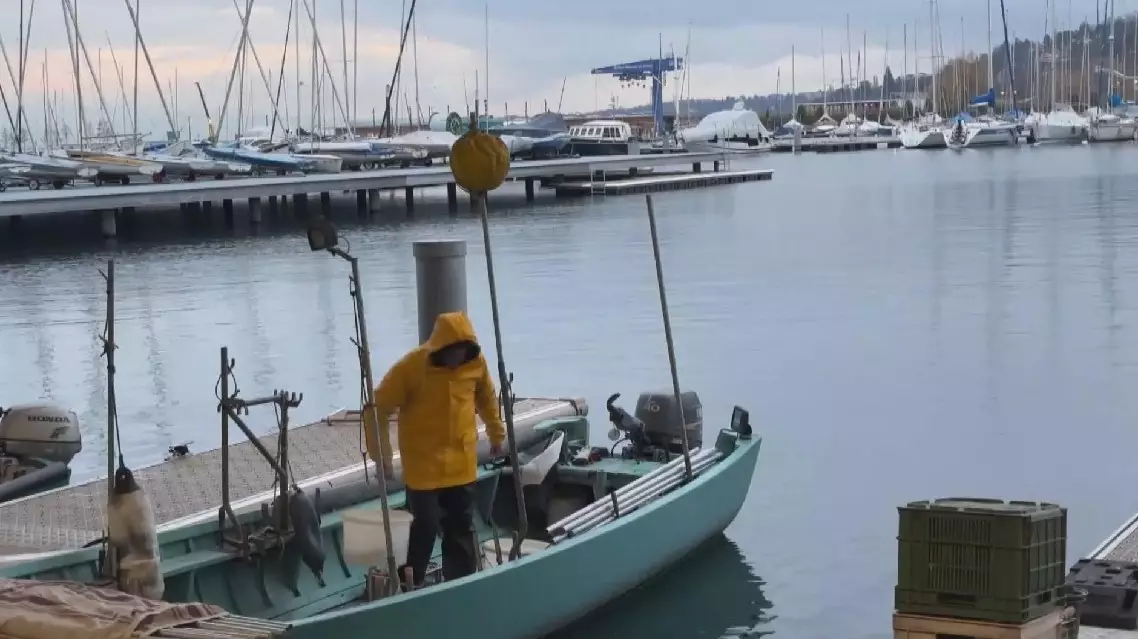The Macao Special Administrative Region has flourished since its return to China in 1999, with innovation playing a key role in the region's economic growth, according to Alan Barrell, a professor at the University of Cambridge.
Barrell emphasized that Macao has made significant efforts to diversify its economy, with the central government's support, through policy, human resources, and financial resources.
As a result, the proportion of key industries that can drive economic growth has increased, and the economic structure has become more diversified and stable.
"I also have seen efforts being made in the field of healthcare, and particularly with fintech, financial technology. So, I think I see progress. I would say that innovation has played a very big part in what has been happening in Macao," he said in a documentary titled "25 Years of Lotus Bond" released on Saturday by the China Media Group (CMG) to commemorate the 25th anniversary of Macao's return to the motherland.
The documentary comprises five thematic episodes: Love for the Home and the Nation, A Path of Diversity, The Flavor of Happiness, A City of Integration, and Gateway to the Future. It highlights the successful practices of "one country, two systems" in Macao under the strategic guidance of the central government.
The Chinese government resumed sovereignty over Macao and established the Macao Special Administrative Region (SAR) on December 20, 1999.

Macao's economic growth driven by innovation: expert
Switzerland, known for its pristine lakes and rich tradition of fishing, is facing a significant challenge of plunging fish stocks that could threaten the livelihood of many in the fisheries industry.
In recent years, local fishermen have seen their catches decline drastically, with about 90 percent of the fish consumed in the country now being imported. This shift reflects broader environmental changes impacting Swiss fisheries, and the difficulties local fishermen are enduring are becoming more evident each year.
At seven in the morning, as the first light of dawn begins to break, a handful of fishermen at a dock in Geneva prepare to head out to the lake to check the nets they set the previous day. As the long nets were hauled from the water, the catch of perch was relatively small, but the fishermen were still satisfied, especially since they managed to net two large pike, which would fetch a good price.
Francois Liani, a fisherman of 30 years, said 2024 has been the worst year for fishing with the lowest amount of catch.
"I have never seen anything like this in over 30 years. That's right, 2024 is the worst year in the past 30 years," he said.
Fifty years ago, there were more than 800 professional fishermen in Switzerland. Today, that number has dropped to fewer than 90.
"There are many reasons, but one of the most important reasons is global warming -- it is one of the biggest problems. We have also new mussels that come from the Black Sea on the Eastern Europe that came about five, seven years ago. They have a large impact on the food availability for the fishes," said Maxime Prevedello, communication officer for the French-speaking region of the Swiss Fishing Federation (SFV).
As a result, the growth rate of fish has slowed significantly. In 2012, 2013, and 2014, a professional fisherman was able to catch around 1,000 tons of fish annually. Today, that number has dropped to just around 100 tons -- a mere one-tenth of what it used to be, according to Prevedello.
In the summer of 2024, Switzerland once again endured high temperatures. Native fish species such as perch, grayling, and the Alpine char, which have adapted to cold water, have been particularly affected. According to Switzerland's environmental authorities, 58 percent of the country's native fish species are now classified as endangered.

Swiss fishermen face growing struggle as local fish stocks plunge










